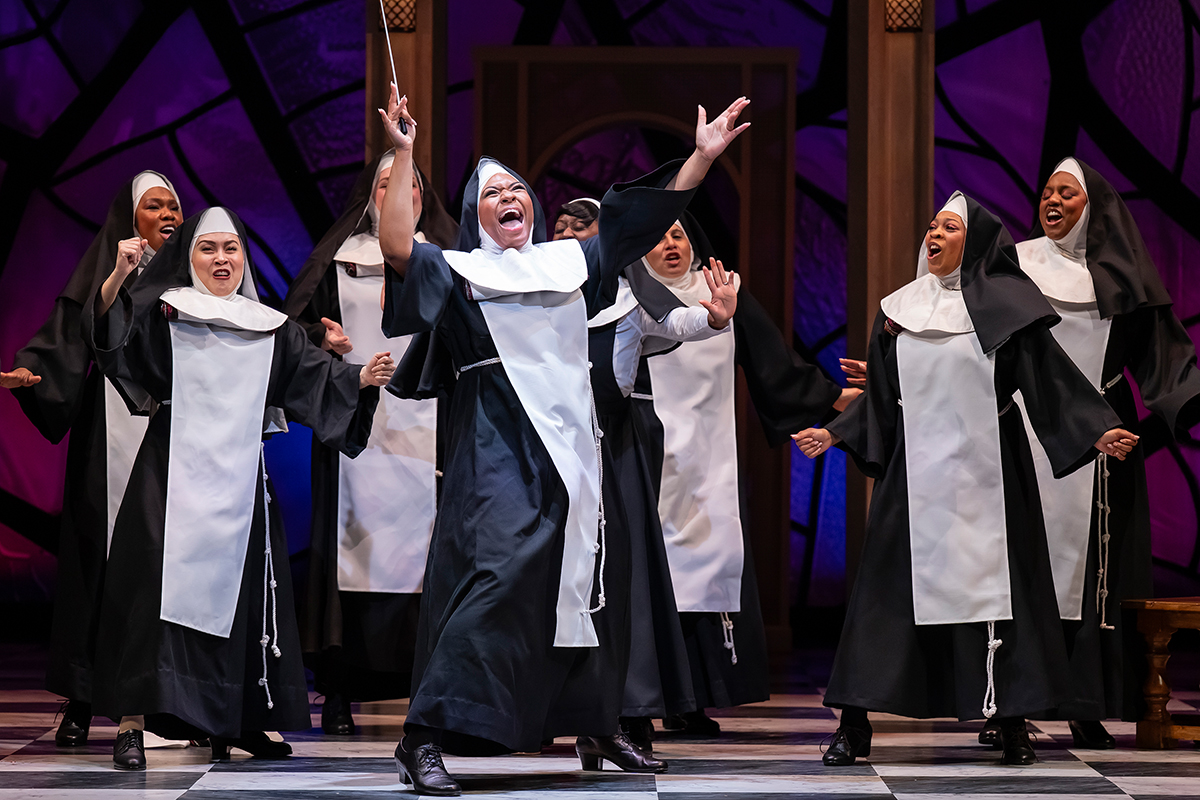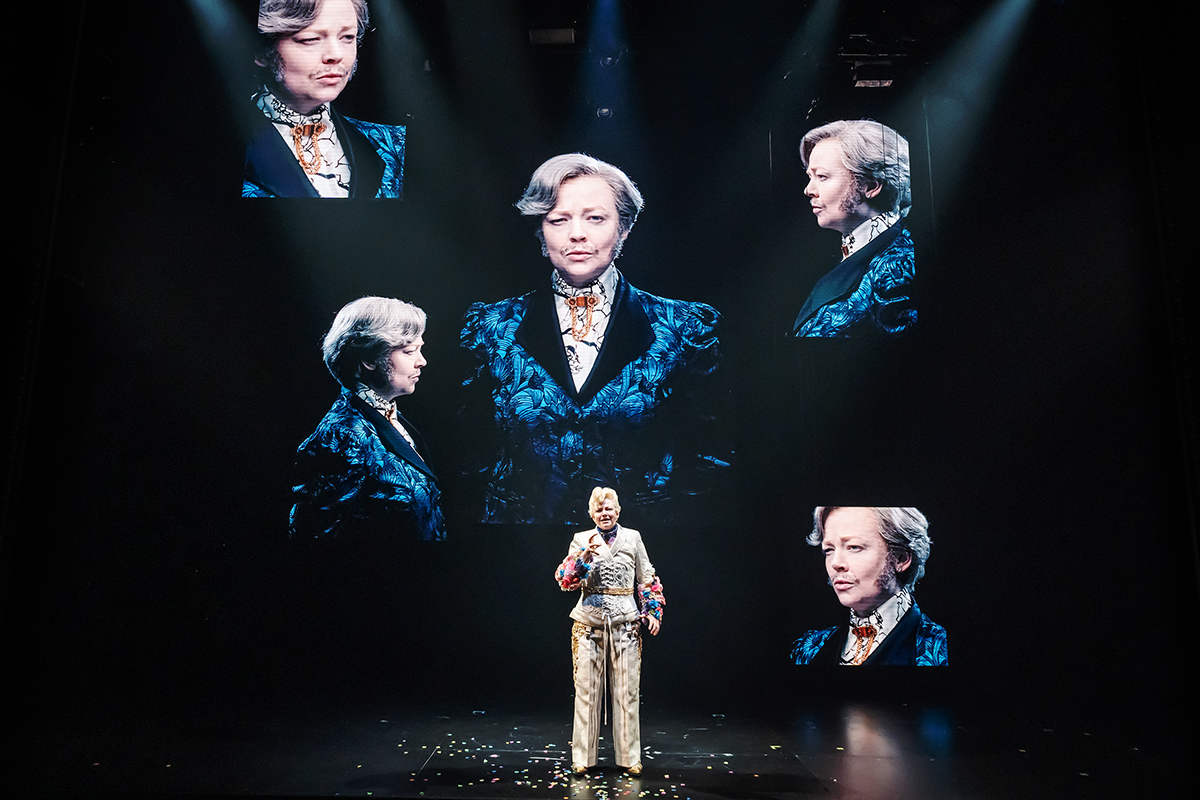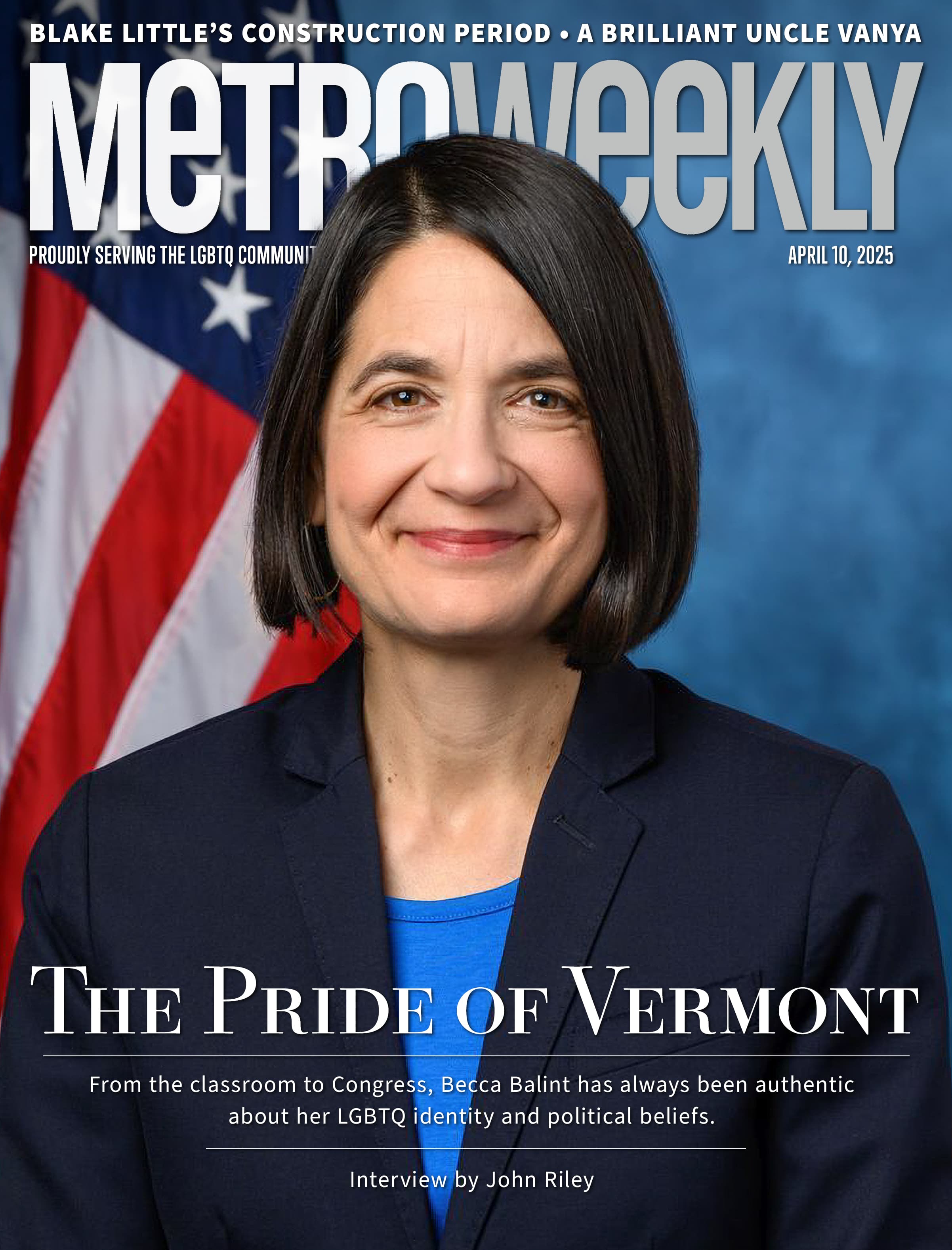DC Theater Review: Silent Sky at Ford’s Theatre
A vibrant Holly Twyford and compelling subject matter help to enliven the mildly pleasing "Silent Sky"

The Scottish immigrant housekeeper-turned-astronomer Williamina Fleming breezes onstage in Silent Sky, quickly establishing herself as the warm, cantankerous, shrewdly observant comic relief and sage advisor who stirs the plot, defining moral and dramatic support. Fully formed through Holly Twyford’s vibrant performance, Fleming isn’t the main event in Ford’s Theatre’s production, but she is among the leading pleasures of Seema Sueko’s otherwise starchy staging of this biographical chronicle of pioneering female astronomer Henrietta “Henry” Leavitt.
Playwright Lauren Gunderson similarly delineated the work and inner workings of real-life proto-feminist thinkers in Emilie: La Marquise Du Châtelet Defends Her Life Tonight and The Revolutionists, but with more formal daring. By contrast, Silent Sky (★★½☆☆) registers a picture-book period portrayal of Leavitt, played credibly if a bit formally by Laura C. Harris. Clearly a vital historical figure, this Henry Leavitt rarely transmits the fiery determination of an iconoclast who remarks that “Life is about getting appropriately upset.”
Charting Leavitt’s uneasy path in the early 1900s from Radcliffe graduate to working in the all-female pool of so-called human computers at Harvard College Observatory, the play duly describes the results of her calculations but doesn’t vividly translate enough of the science behind her studies of variable stars and star systems to inform a layperson’s sense of wonder about them. Leavitt and her fellow computers in the lab analyze photographic plates of those variable stars, known as cepheids, faintly mapping the journey from what the researchers need to learn towards what they might discover.
So characters announce rather than share exciting scientific epiphanies, or expound flatly on how Leavitt’s findings — and the work of Fleming and their colleague Annie Jump Cannon (Nora Achrati) — create ripples throughout the field of astronomy, inspiring leading contemporaries like Edwin Hubble. The flow of female empowerment and scientific discovery tugs at our interest, while the play’s action sketches a big picture that’s short on enthralling detail. Likewise, scenic designer Milagros Ponce de León’s set swallows the cast in sparsely decorated space, under a twinkling galaxy of hanging lights. In a show about women whose keen intellect and persistence helped reveal the vastness of our universe, the production does little to evoke the world outside the tiny bubble of this handful of characters, including Leavitt’s sister, Margie (Emily Kester).
Written as a savvy, hard-working wife, mother, sister, daughter, and composer, Margie might be seen as blazing her own trails, were the direction more inclined to take us there. But Kester’s performance, as wholesome as her crystal-clear singing voice, doesn’t really make Margie interesting in her own right — which might also be said for Henrietta’s love interest, Peter Shaw (Jonathan David Martin), supervisor of the Observatory’s computer pool. Shaw and Leavitt’s teasing rapport, and the running joke of his constantly buzzing by her work station in the lab, make for amusing — and overly familiar — romantic comedy. The play alludes to the battle of the sexes waged among scientists both at large and at Harvard, yet only hints at the intriguing depths of the couple’s hot-cold tension as occasionally contentious peers.

Both the script and production also only hint at the possibility that abandoned wife Fleming and confirmed bachelorette Cannon might have been more than merely colleagues — weaving a subtle queer-positive thread into the intermittently lustrous fabric of a blandly edifying biography. Twyford and Achrati effectively convey the women’s caring for each other, and shared commitment to their work, in pointed words and gestures that render their background relationship with as much dimension as the lead pairing of Henry and Shaw.
The play provokes myriad questions about the barriers Fleming and Cannon might have faced and overcome, while never directly addressing their particular struggles beyond depicting Annie’s activism as a Suffragette. With that plot thread, Gunderson does directly connect the advances these female scientists fought for to the progress of women in all walks of life. The history lesson, and Leavitt’s tale as told here, offer an introduction to the lives and work of these innovators that’s informative and accessible. But the production leaves the impression that the thorny, complicated take rather than the accessible one might have felt more authentic to the lives Leavitt, Fleming, and Cannon led. And it might have more clearly elucidated what it was they saw in the stars.
Silent Sky runs through Feb. 23 at Ford’s Theatre, 511 10th St. NW. Tickets are $22 to $72. Call 888-616-0270, or visit www.fords.org.
Support Metro Weekly’s Journalism
These are challenging times for news organizations. And yet it’s crucial we stay active and provide vital resources and information to both our local readers and the world. So won’t you please take a moment and consider supporting Metro Weekly with a membership? For as little as $5 a month, you can help ensure Metro Weekly magazine and MetroWeekly.com remain free, viable resources as we provide the best, most diverse, culturally-resonant LGBTQ coverage in both the D.C. region and around the world. Memberships come with exclusive perks and discounts, your own personal digital delivery of each week’s magazine (and an archive), access to our Member's Lounge when it launches this fall, and exclusive members-only items like Metro Weekly Membership Mugs and Tote Bags! Check out all our membership levels here and please join us today!
























You must be logged in to post a comment.